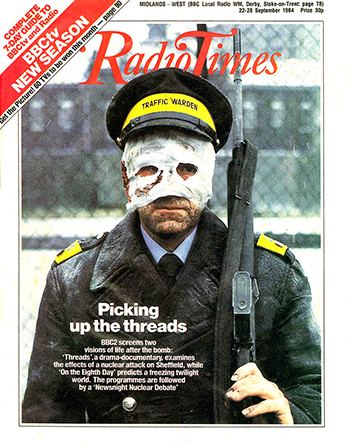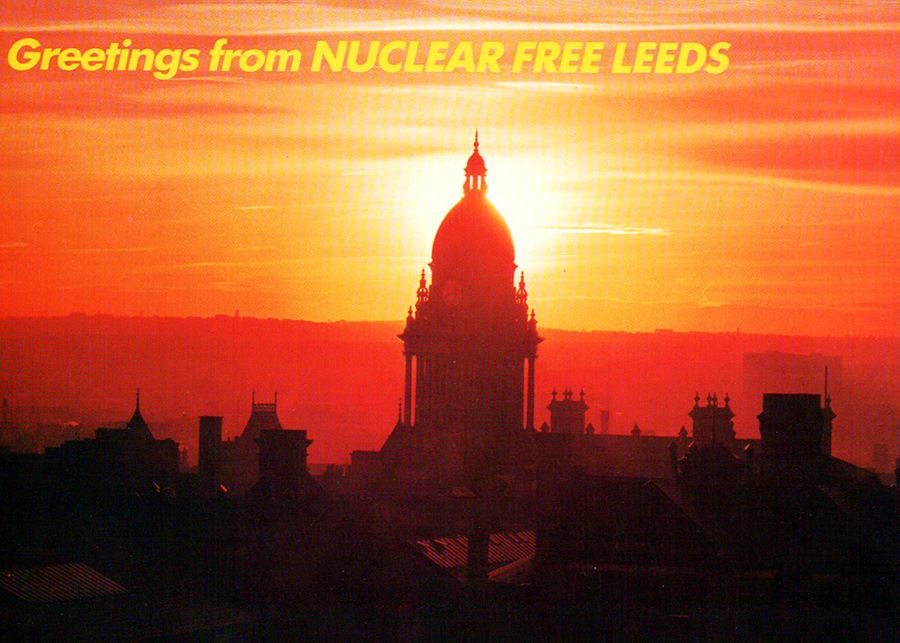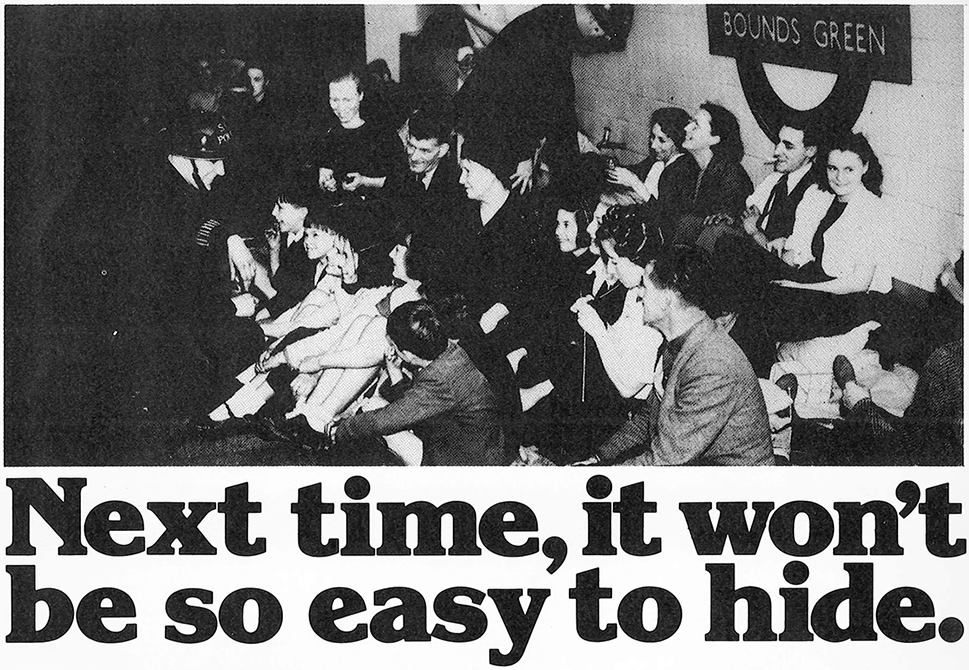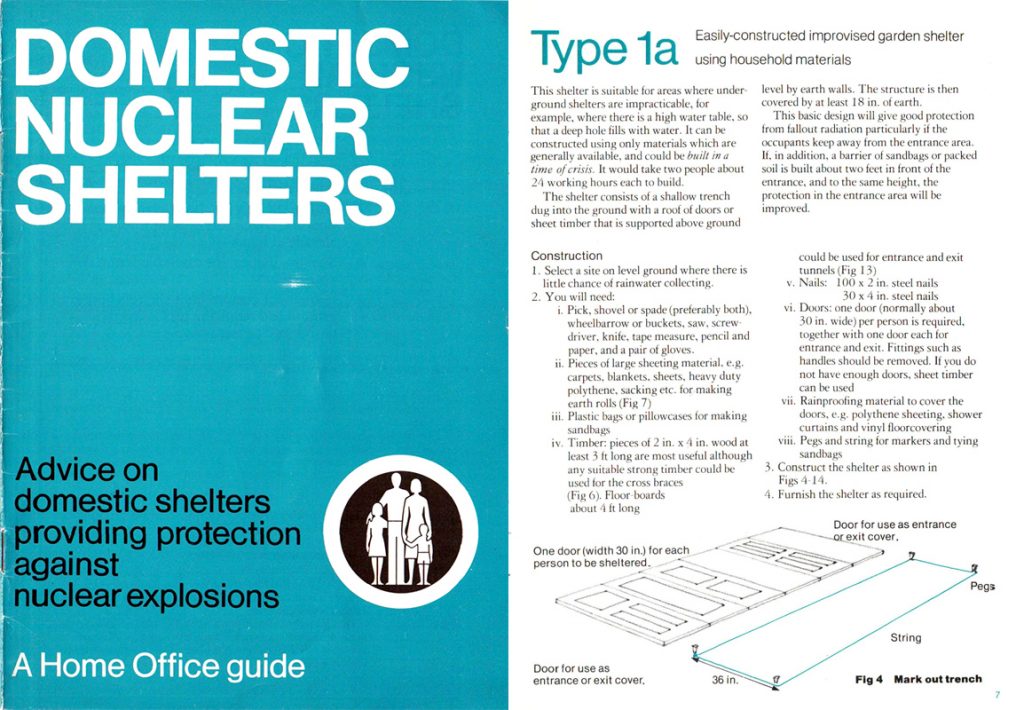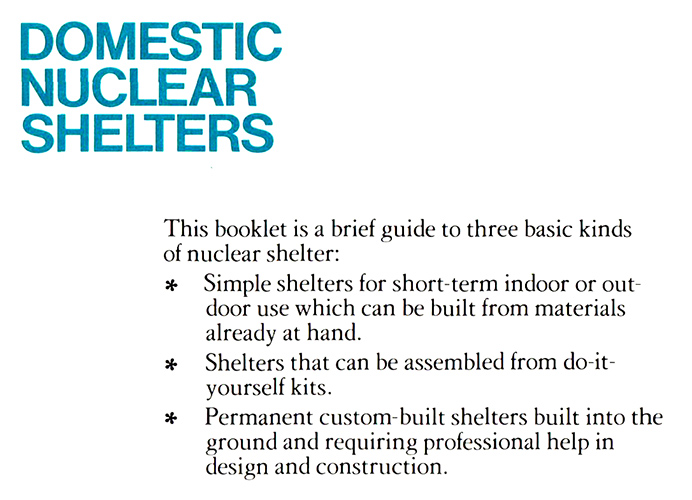Today marks 35 years since the broadcast of Threads, the BBC’s docu-drama portraying a nuclear attack on Sheffield.
Still shocking today, the film is widely held to be among the more realistic depictions of the effects of nuclear war on British life. Although it has only been shown three times on BBC TV (in 1984, 1985 and 2003), Threads has had an ongoing impact on the British psyche.
Last year saw the release of a remastered Blu Ray of the film, which included a new director’s cut and plenty of extras. There’s never been a better time to revisit this powerful work of nuclear horror. Whether you’ve seen threads hundreds of times, have only vague memories of the film, or have never seen it, this carefully remastered edition has something to offer.

